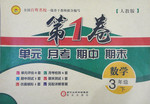题目内容
【题目】假定英语课上老师要求同桌之间交换修改作文,请你修改你同桌写的以下短文。短文中共有10处错误,每句中最多有两处。错误涉及一个单词的增加、删除或修改。
增加:在缺词处加一个漏字符号(∧),并在此符号下面写出该加的词。
删除:把多余的词用斜线(\)划掉。
修改:在错的词下划一横线,并在该词下面写出修改后的词。
注意:1.每处错误及其修改均仅限一词;2.只允许修改10处,多者(从第11处起)不计分。
Last summer,I got a part-time job like a waiter.I worked hardly and was very helpful.Everyone in the restaurant including some regular customer liked me.One day,a foreign couple,which were in their fifties,entered the restaurant. I was happy to have a chance to practice my speaking English.I went up to greet them warmly.After I took their order,I told them their food will be served quickly because us Chinese respect the elderly.Hearing my words,a look of displeasure was appeared on the wife's face.Seeing my confused look,her husband explained to me the westerners disliked the description "old".I made a apology to them,keeping in mind the lesson cultural differences should never be ignored.
【答案】①like改为as ②hardly改为hard ③customer改为customers ④which改为who ⑤speaking改为spoken ⑥will改为would ⑦us改为are ⑧去掉was ⑨a改为an ⑩the lesson后加that
【解析】本文是一篇记叙文,作者讲述了自己当兼职服务员的一次有趣的经历,并懂得决不能忽视文化的差异。
介词误用。句意:我找到了一份做服务员的兼职工作。表示“作为”,用as,故like改为as。
副词误用。句意:我工作努力,并且乐于助人。表示努力,用hard,故hardly改为hard。
名词的数误用。customer是可数名词,且前面有some修饰,所以用复数形式。故customer改为customers。
定语从句引导词误用。这里含有一个定语从句, 关系词在从句中作主语,指人,故which改为who。
形容词误用。表示英语口语,用spoken。故speaking改为spoken。
宾语从句的时态误用。这里含有一个宾语从句,主句是一般过去时,从句要使用相应的过去的时态,故will改为would。
代词误用。作句子主语用主格,故us改为we。
语态误用。a look of displeasure与appeared之间是主谓关系,用主动语态,所以去掉was。
冠词误用。make an apology to sb. 固定用法,“向某人道歉”。故a改为an。
同位语从句误用。这里含有一个同位语从句, that cultural differences should never be ignored.是同位语从句,that引导的同位语从句,that在从句中不担当任何成分,也没有实际意义,但是它不能省略。

 第1卷单元月考期中期末系列答案
第1卷单元月考期中期末系列答案